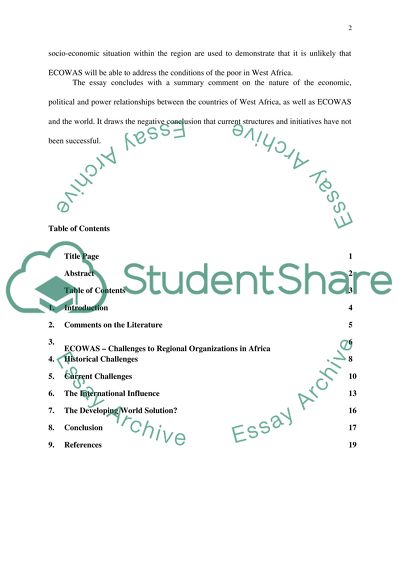Cite this document
(“Role of ECOWAS union in the socio-economic development of West Africa Essay”, n.d.)
Retrieved from https://studentshare.org/geography/1393471-role-of-ecowas-union-in-the-socio-economic-development-of-west-africa
Retrieved from https://studentshare.org/geography/1393471-role-of-ecowas-union-in-the-socio-economic-development-of-west-africa
(Role of ECOWAS Union in the Socio-Economic Development of West Africa Essay)
https://studentshare.org/geography/1393471-role-of-ecowas-union-in-the-socio-economic-development-of-west-africa.
https://studentshare.org/geography/1393471-role-of-ecowas-union-in-the-socio-economic-development-of-west-africa.
“Role of ECOWAS Union in the Socio-Economic Development of West Africa Essay”, n.d. https://studentshare.org/geography/1393471-role-of-ecowas-union-in-the-socio-economic-development-of-west-africa.


